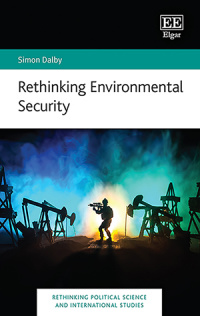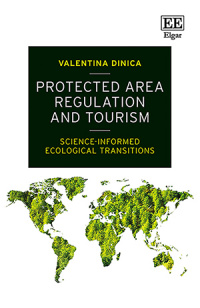
平装
Advanced Introduction to Disaster Risk Reduction
With disasters increasing in both frequency and intensity, this timely Advanced Introduction provides a fresh perspective on how the concepts established in the Sendai Framework can be put into practice to reduce disaster risk, improve preparedness in cost-effective ways, and develop whole-of-society approaches to increasing resilience.
更多信息
Critical Acclaim
更多信息
埃尔加(Elgar)的高级介绍是对社会科学,商业和法律的主要领域的刺激性和周到的介绍,由世界领先的学者专业地撰写。它们旨在可访问但严格,他们对与离散主题领域相关的实质性和政策问题进行简洁而清晰的调查。
With disasters increasing in both frequency and intensity, this timely Advanced Introduction provides a fresh perspective on how the concepts established in the Sendai Framework can be put into practice to reduce disaster risk, improve preparedness in cost-effective ways, and develop whole-of-society approaches to increasing resilience.
Key Features:
• Provides evidence-informed coverage of the core areas of disaster risk reduction
•确定实施问题和预期,准备,评估和治理以及可用于促进它的策略的挑战
•讨论个人和集体的方式来管理恢复并从灾难体验和计划中学习,例如建立灾难和计划,以使人们准备将来更有效地应对灾难
Incorporating research on preparedness modelling, evaluation strategies, adaptive governance, and transformative learning, this Advanced Introduction will be invaluable to students and scholars of environmental management, governance and regulation interested in disaster risk reduction. It will also be a vital resource to policymakers looking to strengthen their disaster preparedness and recovery measures.
With disasters increasing in both frequency and intensity, this timely Advanced Introduction provides a fresh perspective on how the concepts established in the Sendai Framework can be put into practice to reduce disaster risk, improve preparedness in cost-effective ways, and develop whole-of-society approaches to increasing resilience.
Key Features:
• Provides evidence-informed coverage of the core areas of disaster risk reduction
•确定实施问题和预期,准备,评估和治理以及可用于促进它的策略的挑战
•讨论个人和集体的方式来管理恢复并从灾难体验和计划中学习,例如建立灾难和计划,以使人们准备将来更有效地应对灾难
Incorporating research on preparedness modelling, evaluation strategies, adaptive governance, and transformative learning, this Advanced Introduction will be invaluable to students and scholars of environmental management, governance and regulation interested in disaster risk reduction. It will also be a vital resource to policymakers looking to strengthen their disaster preparedness and recovery measures.
Critical Acclaim
‘当世界在复杂的风险景观中面临复杂的危害时,这是宝贵的工作。这本书还及时,国家对仙台框架进行了中期审查。该书说明了减少灾害风险的未来方面,包括适应治理。’
– Rajib Shaw, Keio University, Japan
– Rajib Shaw, Keio University, Japan




